The Hyper Interdisciplinary Conference in the Philippines 2025 Paves the Way for an Adaptive Future
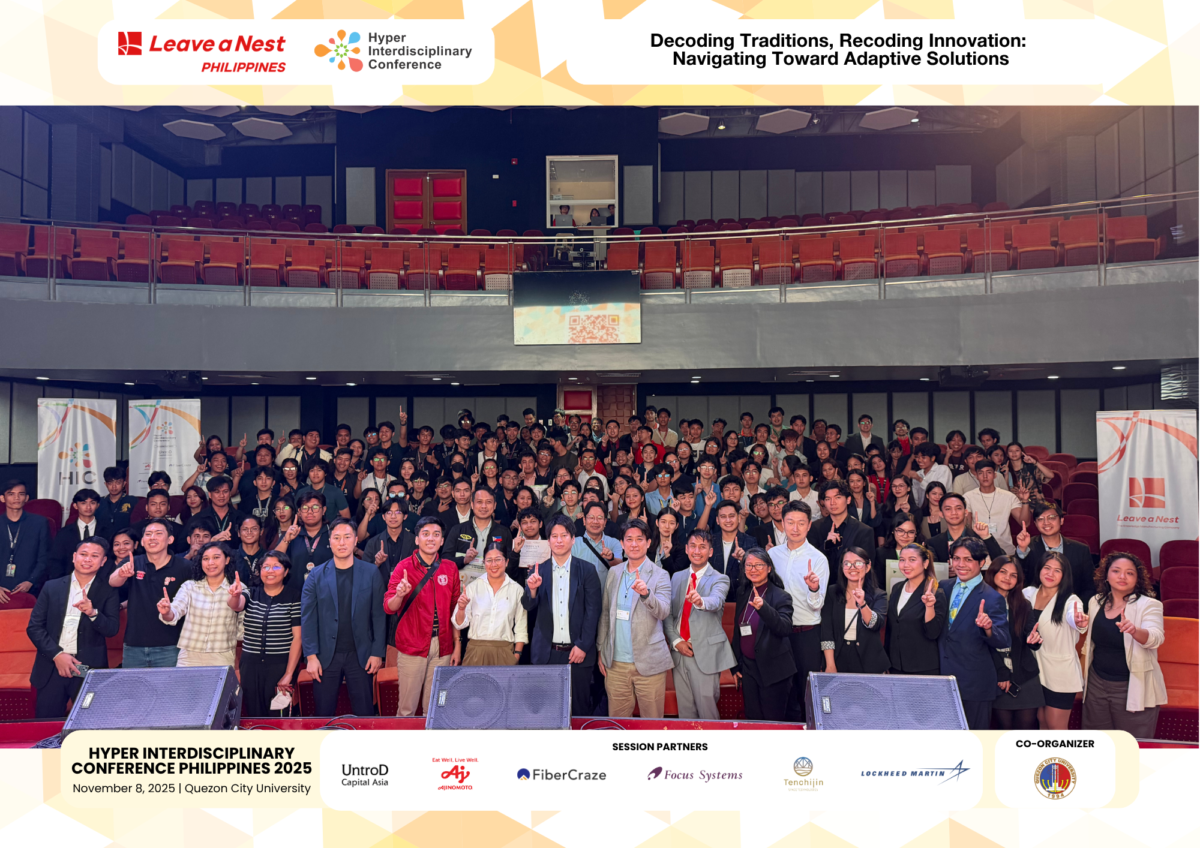
That’s a wrap! The Hyper Interdisciplinary Conference in the Philippines 2025 successfully took place on November 8, 2025, co-organized by Quezon City University Main Campus under the theme “Decoding Traditions, Recoding Innovation: Navigating Toward Adaptive Solutions.” The conference explored the profound relationship between science and culture, emphasizing how both fields intersect to inspire innovation. With 223 participants and attendees, the event created an avenue to shed light on aspects of society that often go unnoticed. It raised a compelling question: What happens when we merge culture with science?
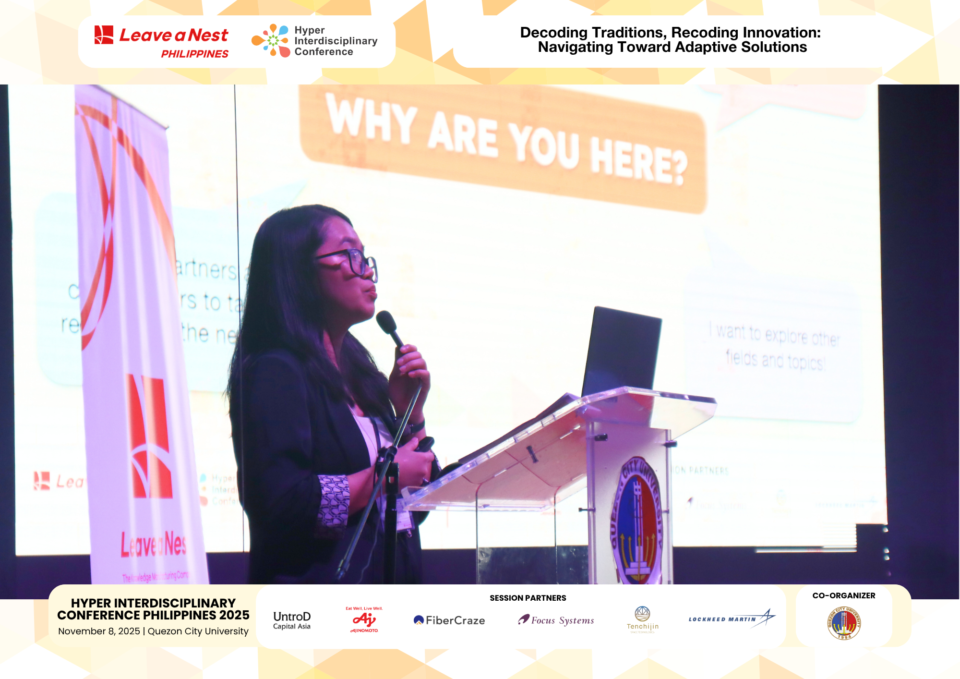
The morning began with an inspiring opening speech from Engr. Ronezza Delos Santos, who warmly welcomed the attendees and challenged them to reflect on their purpose for being part of the event. She reminded everyone that the conference was an opportunity to collaborate, connect, and cultivate a mindset of knowledge sharing.
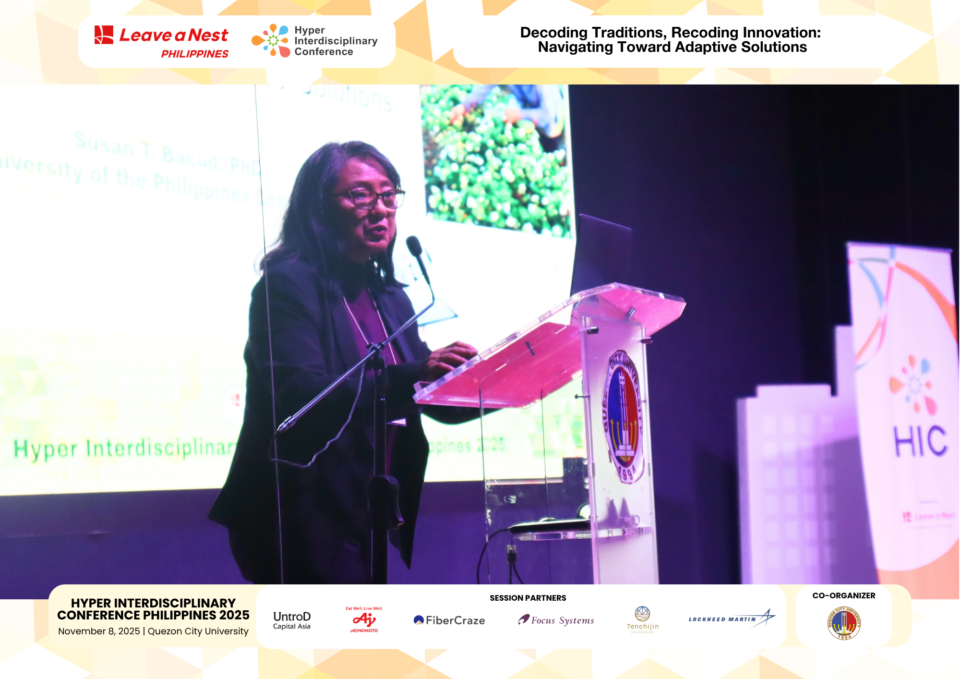
Another highlight of the morning was the keynote address by Dr. Susan T. Bacud, Doctor of Philosophy in Community Development and Master of Management in Rural Development, who set the tone for the day by sharing her experiences and emphasizing the importance of engaging directly with communities to advance science and develop meaningful, adaptive solutions.
The energy continued with 17 research splash presentations and 27 poster presentations that highlighted the creativity and passion of the participants. From these presenters, exceptional projects were selected in each category for their ingenuity and potential impact, recognizing the significant contributions of these researchers in advancing knowledge and fostering innovative solutions within their respective fields.
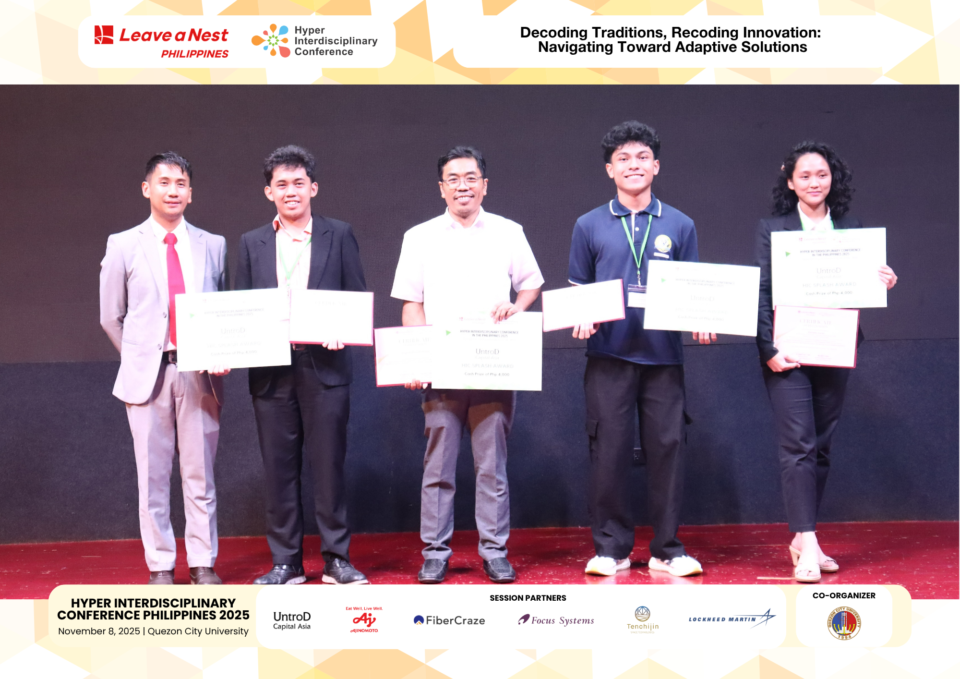
| HIC Splash Presentation Awardees | |
| Bryan John Ortoño Quezon City University – Main |
Accelerating Growth of Ichiban, Little Finger, and Black Beauty Eggplants Using IoT-Controlled Aeroponics with Climate Sensing, Quality Monitoring, and Pest Management |
| Diogenes Armando Pascua University of Science and Technology of Southern Philippines |
MicroCPU: Extending Microcontroller Cores in Raspberry Pi Pico Using PIO |
| Israel S. Estrera Quezon City Science High School |
In-Vitro and In-Silico Study of Anti-Cancer Properties of Methanolic Crude Extract from Cassava (Manihot esculenta Crantz) Leaves on Breast Cancer Cells (MCF-7) |
| Danielle Juarez University of Southeastern Philippines |
EcoKubeta: A Portable, Compost-Generating Toilet System for Coastal Communities |
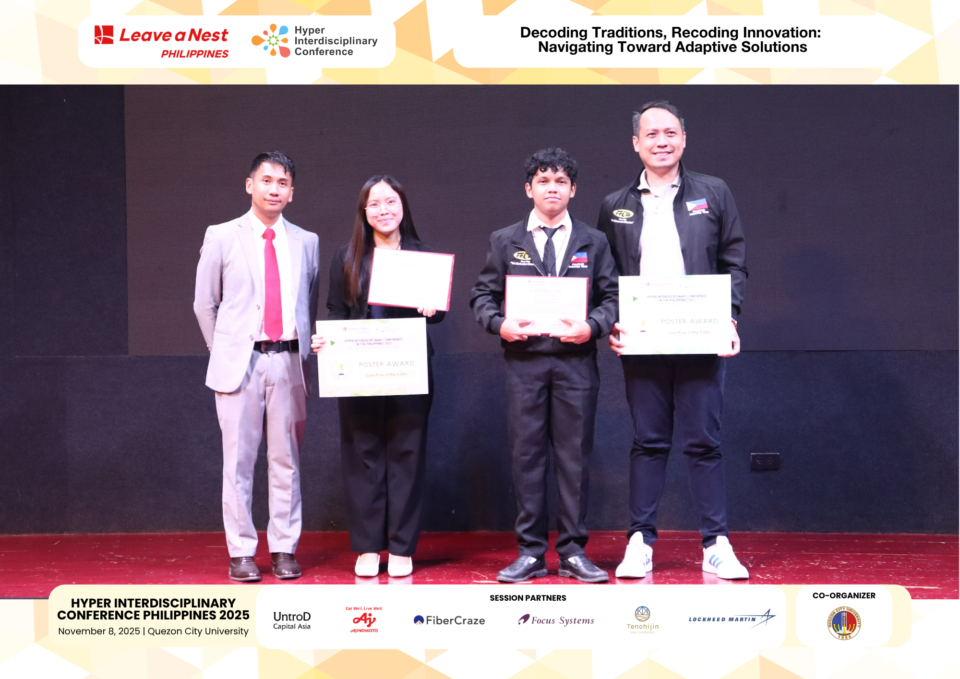
| Poster Presentation Awardees | |
| Mary Anne Butar Avila Quezon City University – Main |
Thermoelectric Integration and BMS Regulator for Off-grid Light Electric Vehicles Charging Station Utilizing ESP32-S3 Microcontroller |
| John Lynard A. Ciocson Minuyan National High School |
H₂Ovantage: A Solar-Powered Water Purifier And Automated Dispenser With Rfid Scanner For Water Potability And Irrigation |
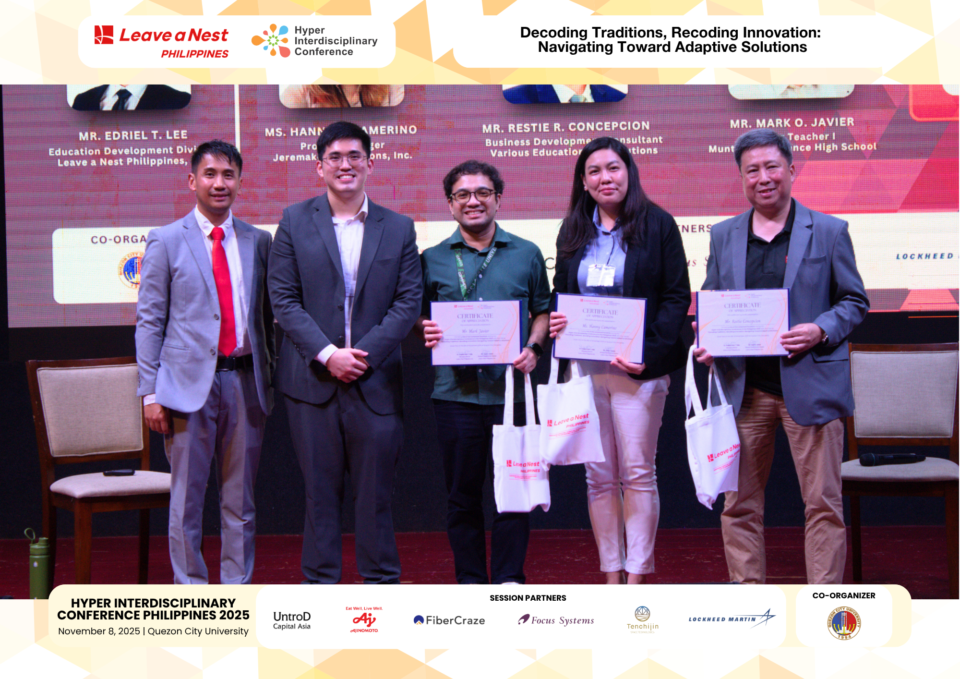
In the afternoon, the conference continued with four parallel panel discussions conducted in collaboration with our partners.
During the first round of panel discussion, Panel Session 1, moderated by Mr. Edriel Lee, featured a diverse lineup of panelists: Ms. Hanny Pearl S. Camerino of Jeremake Innovations, Inc.; Mr. Restie R. Concepcion, representing various educational institutions; and Mr. Mark Archei O. Javier from Muntinlupa Science High School under the theme “Innovations for STEM and Research Education: Identifying Challenges and Rectifying Gaps.”
The panel explored the state of STEM and research education in the Philippines, focusing on how innovation can make learning more accessible and engaging. It was agreed upon that innovation, teacher training, and stronger partnerships between schools, innovators, and policymakers are key to improving STEM education.
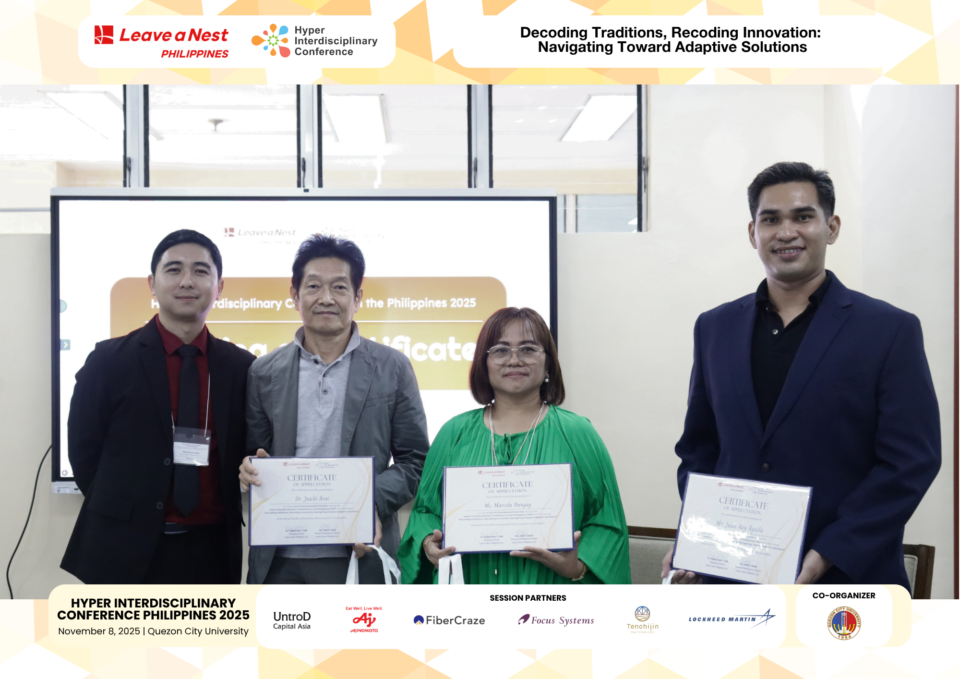
Meanwhile, Panel Session 2, moderated by Mr. Ronrick Arayata, brought together experts from different fields, including Mr. Juichi Arai of FiberCraze Co., Ltd.; Mr. Julex Rey V. Aguila from the National Institutes of Health, University of the Philippines–Manila; and Ms. Marcela M. Bungag of Marikina Polytechnic College under the theme “Immunity by the thread: Weaving Mosquito-repelling Fabric.”
The discussion introduced FiberCraze’s mosquito-repelling fabric technology, which uses nano-porous fibers to embed insect-repellent and antibacterial agents. Speakers emphasized the need for affordable, sustainable, and locally adaptable solutions, noting the fabric’s potential to help reduce rising dengue cases in the Philippines. They envisioned functional, health-protective clothing becoming widely accessible through collaboration among researchers, industry, and government.
The second round of panel discussions featured two insightful sessions that delved into sustainability and research-driven innovation.
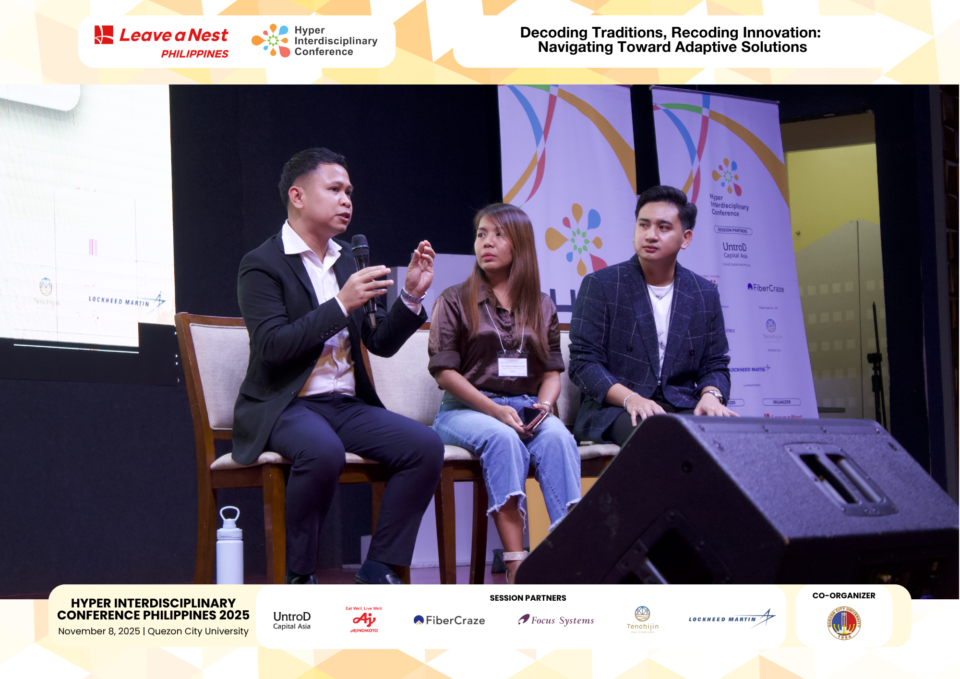
Panel Session 3, which is supported by Ajinomoto Philippines Corporation, centered on the theme “Sustainable Food Packaging: Wrapping Flavors with Science.” The session was moderated by Ms. Jewel Santos and featured distinguished panelists: Mr. Jaypee Dela Cruz, Research and Development Manager, Ajinomoto Philippines Corporation; Ms. Julienne Stephanie Fabie-Agapin, Associate Professor IV at Western Mindanao State University and Founder and Chief Executive Officer of FiberForms Creatives; and Mr. Matt Rafael M. Genito, Chief Executive Officer of PackUp Management Consultancy Services.
The discussion emphasized that developing effective sustainable packaging is a long and meticulous process that demands extensive research, testing, and collaboration. They shared a common understanding that true sustainability goes beyond materials, which requires purpose-driven design and deep collaboration to create packaging solutions that are both product-smart and environmentally friendly.
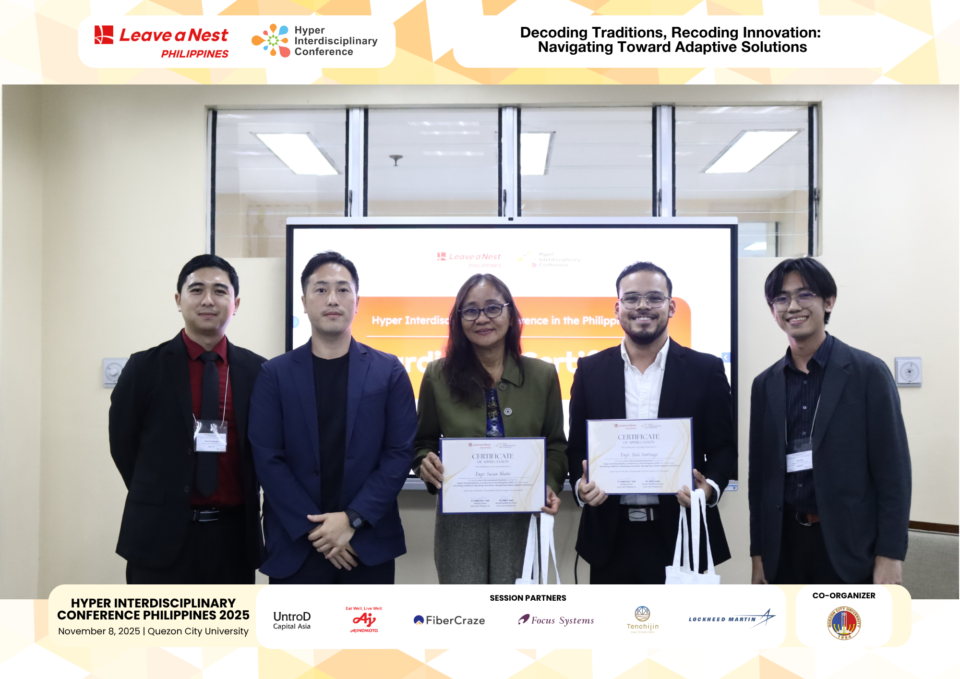
Meanwhile, Panel Session 4, supported by Tenchijin, Inc., explored the theme Digital Pathways: Navigating the Future of Water Infrastructure in the Philippines. Moderated by Mr. Neil Clarence Diaz, the discussion brought together key experts in the field, including Engr. Susan P. Abaño, Chief of the Policy and Program Division, National Water Resources Board, and Mr. Dale Santiago, Non-Revenue Water Officer, Maynilad Water Services, Inc.
The discussion highlighted innovations in materials, leak detection, and water management, emphasizing the importance of research-driven policies, capacity building, and sustainable financing. The speakers shared a unified vision of a data-driven, collaborative, and resilient water sector by 2030, where technology and human expertise work together to ensure safe and reliable water infrastructure for all.
Participants also took part in a hackathon-style activity through the Ignition Session, an interactive platform supported by Lockheed Martin, where early-stage innovators and high school students showcased their ideas and collaborated to develop transformative solutions. Centered on the theme “Next Gen Tech & Next Gen Leaders: Innovations to Transform Knowledge Transfer & Learning,” the session challenged participants to become innovators of the future by designing and proposing technology-driven solutions that advance STEM education—reflecting Lockheed Martin’s commitment to cultivating the next generation of engineers, scientists, and problem-solvers. By fostering creativity, collaboration, and real-world application, it promotes reimagining how STEM is taught, learned, and experienced, inspiring new approaches that connect classroom learning to the technologies shaping tomorrow’s industries.
In parallel, Leave a Nest Philippines also hosted an Ignition Session under the theme “Integrating Science, Innovation, and Culture to Reinforce Adaptive Living,” providing another venue for participants to explore sustainable and community-driven innovations with new team members that have the same vision.
From these sessions, two outstanding teams were recognized for their innovative contributions:
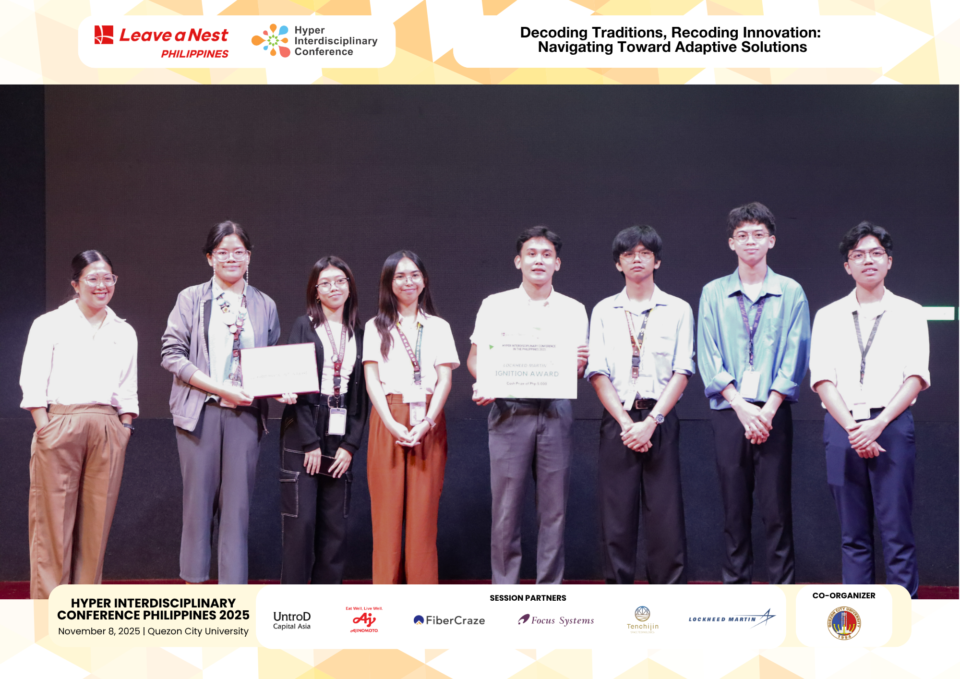
| Lockheed Martin Ignition Award |
| ARAL (Augmented Reality Assisted Learning): Digital Twin Learning Ecosystem Team SandiwaAngel Rose Bartolome, Vance Ranjel Cajayon, Joshua Gabriel Cejo, Nicole Kirsten Co, Enzo Crisostomo, Shiela Mae Demition, and Jayward Balinas |
r
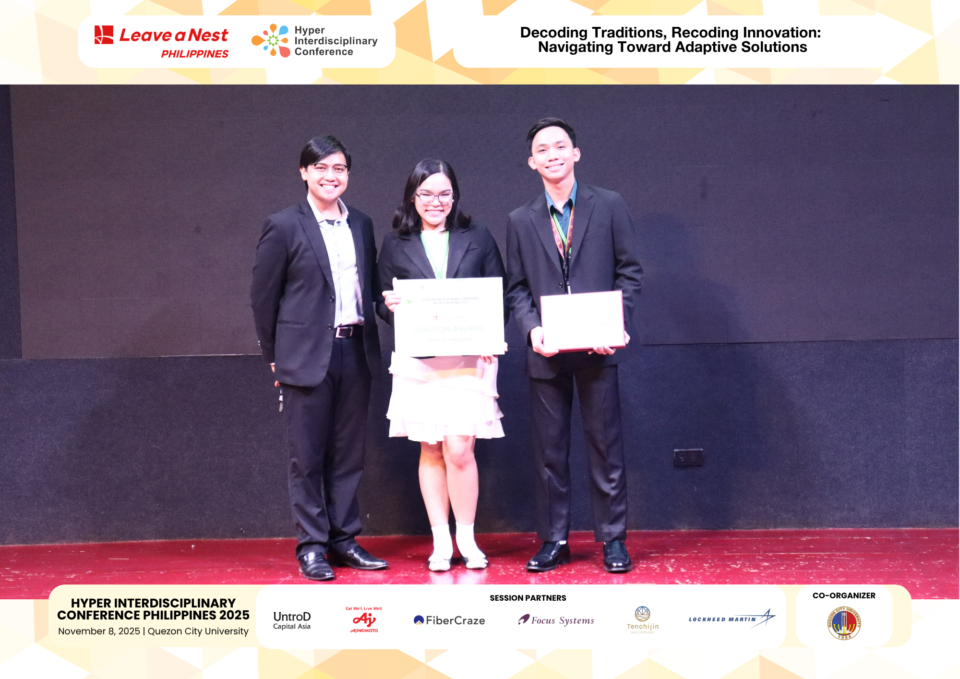
| Leave a Nest Ignition Award |
| AI Bularyo: AI-Assisted Herbolaryo Team AI Gimat Lab Minly Kaye Baguio and Jomer Ruego |
The awarded teams were recognized for research with strong potential for real-world impact and alignment with initiatives that could be advanced through collaboration and continued support, reflecting HIC PH’s mission to help promising ideas move toward implementation. With that, the Hyper Interdisciplinary Conference in the Philippines 2025 concluded with a renewed commitment to bridging science, culture, and innovation, as educators, researchers, industry leaders, and learners forged partnerships and exchanged actionable insights.
Several participants initiated discussions on future collaborations in areas such as sustainable materials, water management, and technology integration, while others received mentorship and advice to advance their ongoing research. Looking ahead, HIC PH envisions these collaborations maturing into concrete projects and mentorships that tackle real-world challenges, empowering participants to transform ideas into impact and contribute to a more adaptive, inclusive, and sustainable future for the Philippines. Building on this momentum, the next Hyper Interdisciplinary Conference Philippines will be held on November 14, 2026, so watch out for more updates as HIC PH continues to drive innovation, collaboration, and progress.
For any inquiries, please contact Leave a Nest Philippines at [email protected] or reach out via Facebook (https://global.lne.st/LNEFB) or LinkedIn (https://global.lne.st/LNELinkedIn).
